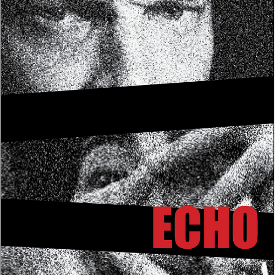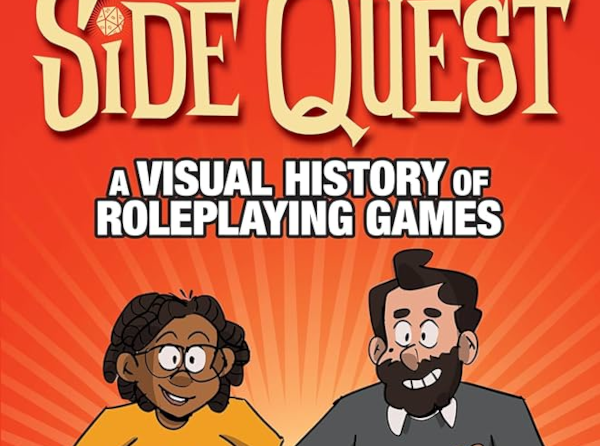Pushcart Prize-nominee Donna Glee Williams was born in Mexico, the daughter a Kentucky farm-girl and a Texas large-animal vet. She graduated from Tulane University, then earned an MFA and Ph.D. from Louisiana State University. Her years of wayfaring across twenty countries and four continents include a Fulbright Fellowship to study pesticide issues among small cotton farmers in India, which is where she found the inspiration for The Night Field. She’s worked as turnabout crew on a schooner, librarian, environmental activist, registered nurse, educator, editor and creative coach, as well as writing two fantasy novels, The Braided Path and Dreamers, as well as poetry and non-fiction. She lives in the Blue Ridge Mountains in Eastern America.
The Farm
Pyn-Poi
Twin posts straddle the broad path. A lintel-beam hangs between them, marked with odd faded symbols that give off the chilly feel of power. A ghost-door? Some kind of gateway?
Not a gateway – nothing behind the posts, nothing on either side. No walls, no fence, nothing for a gate to enter or exit. Nothing but more empty land, flatter than any natural thing.
The boot-men hustle me between the posts and right then the light fades from the sky. Is it only that we crossed over just as the sun went down? I do not think so. There is something dark here, darker than simple night.
I walk on, though. What choice do I have, with my wrists pinioned like a water-hen for the slaughter? These four men that box me in are older than me, bigger than me, and stronger. They have their sticks, and they relish power and pain as if they have never dipped their hands into another’s Flow.
So I walk.
It gets darker still, until I can make out a cluster of lights ahead of us. I hear in the men’s voices that we are near the end of the journey. I catch the word that means ‘dinner’. Wherever we are going, we will be there soon.
Somewhere nearby a fang-foe howls. Others join in. We are being tracked by a hunting pack, and my knife is gone. There is no friendly trunk or vine to climb, no stick to swing, no rock to throw. Those puny rods that hang from the boot-men’s belts: They burned like lightning when they landed on my naked legs, but they would be nothing against a pack of hunters – like stalks of grass whipping their fur. And would those men even try to protect me, or would they just throw me to the beasts so that they could get away?
Do not die, Pyn-Poi. Refuse to die in this place. Not until you have finished. Not until it is done.
The rough fabric of this dress they put on me stirs in a puff of night wind that brings me a hint of a smell I recognise: death without decay. My hand twitches up as if to pull my wrap over my nose, but my wrists are bound and my wrap is gone. The feathers are gone. Everything is gone.
I am far, far from the Real and there are no trees here.
The Guard
‘Took your time, didn’t you?’ The Administrator doesn’t look up from his desk.
‘The men walked steady, sir, and we took no rests, except for lunch. It’s a long road—’
‘I know exactly how long the road is.’ He slaps the pen down and snaps his logbook shut. ‘You should have left earlier. New contractees have to be delivered well before the dogs’ change-over. The night-hounds’ll barely have a chance to give her a good sniff before the day-hounds get back to the kennels. The children like to watch, you know – they don’t get much entertainment out here – and we don’t want the little ones staying up past their bedtimes, do we?’
‘No, sir. Wouldn’t want that.’ Never argue with an Administrator.
‘Well, then, skip the girl over to the kennels double-quick and hand her over. Then get yourself and your men something to eat. Unless you want to stay and watch the fun, of course. You know where the kitchen is?’
‘Yes, sir. Been to the Farm before.’
‘Of course you have. Well, then. Cook’ll take care of you, show you where to sleep. Here’s your receipt for the delivery.’
‘Thank you, sir. I’ll say goodnight to you now, and sorry again about the late hour.’
‘Just try leaving before noon next time.’
The Child
At last!
We waited all afternoon for the sounds of the day-hounds baying around the road and, finally, there they were – four town Guards and a funny-looking girl trailing up to the Administration compound. The dogs pushed in tight around them, sometimes running in close enough for one of the men to take a swat at them with his beater. Oooh, the Managers would be mad if they saw that. Nobody gets to hit the dogs but them.
We all ran to get a good place at the fence. Some of the grownups were strolling over, too, pretending this wasn’t the most exciting thing to happen in weeks. The Kennel-Managers had already set up some torches – the dogs don’t need ’em; they’re for us, so we can see. Lain was already rolling the barrel out into the middle of the dog-yard when we got there. I let little Navir squeeze in front of me.
After a long time – they have to check in with the Administrator first, of course – the town Guards brought the new girl up to the fence, snapped her cuffs off, and handed her over to the Kennel-Managers. You could tell she didn’t know anything. She stood there looking around, bare legs showing under her clean new burlap work-dress. Just think: she had no idea what was about to happen. That made me shiver a little.
Manager Lain walked the girl into the dog-yard – it was funny to see how she prissed around, trying not to step on the piles of poo in the flickering light. Then the night-hounds caught her scent and things got real noisy. You could hear them throwing themselves against the big old doors of the kennel, crazy to get at this new smell on their land, and snapping at each other when they couldn’t. Navir pressed his fingers in his ears and looked up at me like he might cry, but I shouted down at him, pointing: ‘Watch now! This will be good.’
Manager Lain pushed the girl down on her knees and yelled at her to get inside the barrel. She didn’t go at first, so he kicked her some to make her crawl in through the little hatch. She fit inside easy, no taller than Ritoln. That meant the barrel would roll better when the dogs came out. Sometimes, with the big ones, they have to cram them in hard just to get the hatch to close. Those don’t roll around so well. Too heavy. Not as good a show.
While Manager Lain locked the lid down and gave it a tug to check the latch, I watched the shadow of the girl through the old chewed-up wooden slats that leave just enough room for the dogs to push their noses in, but not actually get at the person inside. That would be a waste. Waste is bad. Waste cuts into profits. Letting the dogs tear up a fresh, new tractee would be bad. (But it would be exciting.)
The girl crouched in there on her knees and elbows, rump in the air like a cat. She turned her head this way and that, rubbing at her wrists, shaking her hands every now and then, like she was trying to shake something off her fingertips. Listening, I bet – hearing all that growling and yelping. She twisted around to face the racket of the dogs behind the shuddering wooden doors. This made the barrel roll and toppled her onto her side. Everyone laughed. She scrambled to get onto her knees again, to balance her rocking cage.
Manager Lain stepped out of the dog-yard and slid the bolt of the gate closed behind him. He reached over and ruffled my hair. ‘Ready?’ he asked and we all shouted ‘Yes!’
He nodded at Manager Rethim to tug on the rope. The kennel doors slid aside. A snarling riot of dogs poured into the yard, drowning the girl’s scream under their barking. They closed in on the barrel, rolling it from side to side, trying to get at her, pushing their snouts in, gnawing furiously at the old wood. The girl tumbled around like a doll as the rush of dogs shoved the barrel one way and then another. Some of them surged onto the top to dig at her from above, then fell into the rest when the barrel rolled under them.
Navir’s hands dropped away from his ears and he was clapping and shouting with the others. I looked up at Manager Lain and he slapped me on the back.
Manager Lain gave us a great show, but finally shouted, ‘Enough.’ The other Kennel-Managers beat back the hounds with their dog-lashers. It’s always over too soon.
Now we had to wait while the night-hounds were herded out to do their jobs. They keep us safe at night, patrolling for any tractees stupid enough to leave their dormitories after dark. But soon, the show would start again. The day-hounds would be coming in for their dinners and they had to learn the new meat’s scent, too – even when the sun was up, tractees couldn’t be trusted not to wander away from their assigned fields.
But it would be a while yet before they all got in from the Tracts. ‘Manager Lain, can we play with her?’ I asked. ‘Just until the dogs get here?’
‘Sure,’ he said. ‘Why not? Just go along in there and roll her around for a while, stick your own little snouts between the slats and get a whiff of her, why not? Rub yourselves all over that barrel and when the day-hounds get in they’ll learn your smell along with hers so that, when we send them hunting, they’ll come find YOU.’ Navir squealed as Manager Lain lifted him up as if to throw him over the fence into the dog-yard. We all giggled.
After the day-hounds had had their sniff, too, and been put away for the night, Manager Lain let the girl out of the barrel. It was funny to watch her stagger around like she was drunk, trying to get her feet under her after being rolled around for so long. She wasn’t so prissy about the dog-piles now, was she?
Supervisor Jagath took her off Lain’s hands, with Manager Goban – she’s Dekar and Ludi’s mother. We tagged along, too, the younger kids circling like a pack of puppies just learning their job, daring each other closer, running in and yapping questions at the girl, then running away again. She didn’t even look up. ‘What’d you do?’ they wanted to know. ‘How long is your contract?’ ‘You kill somebody?’ ‘This your first time?’ Silly question – anybody with eyes could see it was the girl’s first time: no mark on her cheek.
The Managers hauled her up the steps to the Barber’s porch and dropped her into the big chair that’s bolted to the floorboards, then stepped back to let Sakky do his work. The girl was so little and limp that nobody even bothered to strap her in. Manager Goban settled on the steps for a smoke. The other kids and I watched from below, the light from Sakky’s brazier making weird upward shadows on everyone’s faces. I saw Sakky pick up the long straight razor he uses to shave the tractees so they don’t get lice. He turned to the girl and suddenly she went crazy – up out of the chair with something in her hand, maybe the razor, squealing like a goat on slaughter-day.
In a blink, Supervisor Jagath was on her from behind – she’s fast for someone so big – her elbow around the girl’s neck.
Manager Kai had her wrist, roaring, ‘Drop it! Drop it!’ But the girl wouldn’t stop fighting, kicking out at Kai, clawing behind her for Jagath’s eyes. I could feel the other children press close around me. This wasn’t supposed to happen.
Manager Goban scrambled up the steps, her dog-lasher in her hands, and cracked the girl on the side of her head, hard.
It didn’t knock her out, not quite, but it knocked the fight out of her for a minute, long enough for Supervisor Jagath to mash her back down into the barber-chair. Sakky snatched up a couple of straps from the shelf behind the chair and threw them to each of the Managers. Between them, they had the girl down tight in seconds, with the butt of a dog-lasher between her teeth and Supervisor Jagath forcing it back against the top of the barber-chair so that she couldn’t move her head while Sakky hacked off her braid and dry-shaved her bald as an egg. Jagath was real mad.
The girl never stopped fighting, though, straining and jerking against the big leather straps and making funny choking, whining sounds against the stick in her mouth. I’ve never seen anybody get so crazy about being shaved. It’s for their own good, they should understand that – not just the lice, you know, but also so they don’t have to waste work-time keeping their hair tidy on the Farm.
Sakky cuts my hair. It doesn’t hurt at all.
After the shaving was done, Supervisor Jagath kept hold of the girl’s head while Sakky pulled the little iron wand out of the brazier, holding it with a leather pad. I started up the steps, but Supervisor Jagath stopped me. ‘Sorry,’ she said. ‘I know I promised, but this one’s so wild, we’d better let Sakky handle it. You can do the next one.’
I was disappointed, but I understood. Every tractee’s half-moon needs to be crisp and clear so that when the contract is over the circle can be neatly closed with the freedom brand. You have to put it on just right, not sloppy. If someone is bucking or jerking around too much, the mark can get smudged. I probably could have held it steady, but . . .
So Supervisor Jagath held the head and Sakky put the mark on, that little crescent no bigger around than a fat man’s thumb, right below the corner of the mouth, the mark that tells all the world that this person’s time and life and work belong to the System until the System says otherwise.
And after all that fuss about the haircut, the girl barely squeaked when the glowing metal touched her skin.
Goban
Shooing the kids away – well past their bedtime – we lugged the new tractee down off the porch, dead weight, the tops of her feet dragging the ground, bouncing down one step after another. Jagath’s mouth was locked tight, her chin scratched, her eyes narrowed and her big worm eyebrows pulled down in a way that made me keep my mouth shut. This baby bite of fresh meat was going to regret taking a swipe at Guard Mama. Had the little nit been thinking that she could tell the Barber what style to cut her pretty hair? Well, that fat braid of hers belonged to Sakky now, his for selling to the wig-makers back in town, and she’d made Jagath mad on her very first night on the Farm. Big mistake.
Guard Mama snarled, ‘Throw some dip on that garbage and dump it in Tract Eleven,’ before she stalked off toward the women’s houses. We pulled the girl along for a while, then Kai stopped short and growled, ‘I am damned well not going to carry this little bitch all the way to Eleven.’
We dropped her, face-first, into the dirt. She lay there moaning, clutching her shaven head. I could see in the bright starlight that Sakky hadn’t been any too careful with her after she caused all that trouble; streaks of dark blood dribbled from a handful of razor cuts and smeared her arms and face as she pawed at her scalp.
Kai looked at me, shaking her head – I could tell she was going to have a big bruise on her cheekbone from the scuffle – took careful aim, and planted her boot-toe in the girl’s side, right above her hipbone. Nothing too hard, just enough to get her attention. She rolled up into a ball, gasping for breath. Kai grabbed the neck of the work-dress, hauled the girl up onto her knees, and bent down, close to her ear. ‘Now you walk,’ she said in that soft voice of hers that can scare sun-drunk thugs twice her size back into the picking line. ‘You walk.’
The girl walked, arms clenched around her head as if someone were beating her. The night-hounds circled us, baying.
Pyn-Poi
I do not die.
I come to myself again in the dark, with fang-foes circling and two of the boot-women shoving me and pointing at a pale square, like a big tray, on the ground. Smooth-worked slices of wood long dead and lost here in this treeless place. It takes me a long, confused moment to understand: the women want me to stand on the tray. I bend to take off my sandals – respect for the dead – but a hard kick knocks me sprawling onto the ancient wood. My fingers find the grain, stroke it, but do not find even the memory of life there.
The boot-woman with the snake-whisper voice strips the rough dress off me. As she yanks it up over my head, I feel my skull naked and cold in the night air. I finger the hacked stubble. Not a nightmare – the amputation was real. But my tears have gone somewhere else, somewhere very far away. What is there to do now? I get up and let them do their things to me.
And what they do is this: the other one, not the one with the snake-voice, takes the lid off a big bucket, dips a ladle in, and brings out a mounded scoop of something pale and yellowish under the stars. Without warning, she throws it in my face.
I double over coughing, pawing at my face. My eyes burn like red coals in their sockets – I try to shield them while the boot-women throw more of the evil powder and rub it all over me, even in the places strangers should not touch.
But I do not fight them. Not because of their sticks. Not because of the howling things that watch from the shadows. And not, I think, because of the amputation. I stand there and bear their touch because of this: When I gasp at that first face-full of the evil stuff, I smell it and I recognise it and I hate it with the hate you can only feel toward killers of your close kin: Your sister. Your grandmother. Your trees.
The Stink. I breathe in that foulness like a flower, although it makes me choke. The choking does not matter. None of it matters, not the fire in my eyes, or the hard hands on my body or the kicks or the clubs. Not these crazy boot-people who’ve wandered so far from their Other bodies that they can whoop with joy at another’s shaming. Not the fang-foes growling in the dark. Not – and my breath catches in my throat at this – the amputation. Not even that.
None of it matters. The Mothers’ feathers are safe with Bazleti, and I . . . I am in the right place.
Finally, I am where I need to be.
The Trees
‘I cannot breathe. The air will not come in.’
‘I know. It is hard.’
‘My leaves are burning. There are no flames, but they burn.’
‘And the flying ones, where are they? Who will carry our tomorrow if the flying ones are gone? How will there be fruit without them? How will there be seedlings without fruit? And how can we die without seedlings to come after?’
‘Then do not die. We have responsibilities. We must stay alive. Stay alive while she does her work.’









